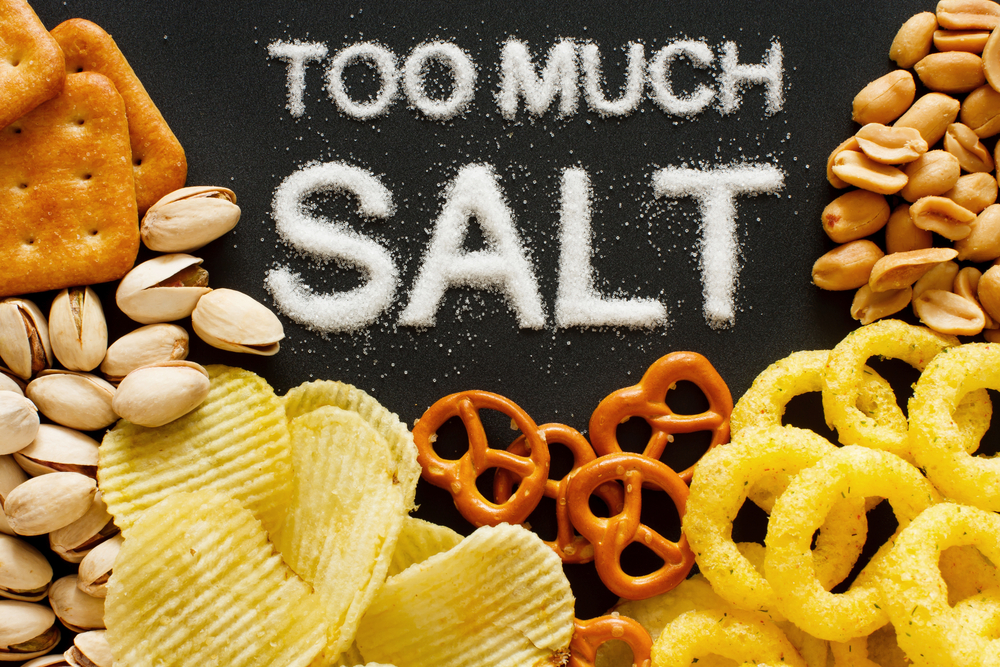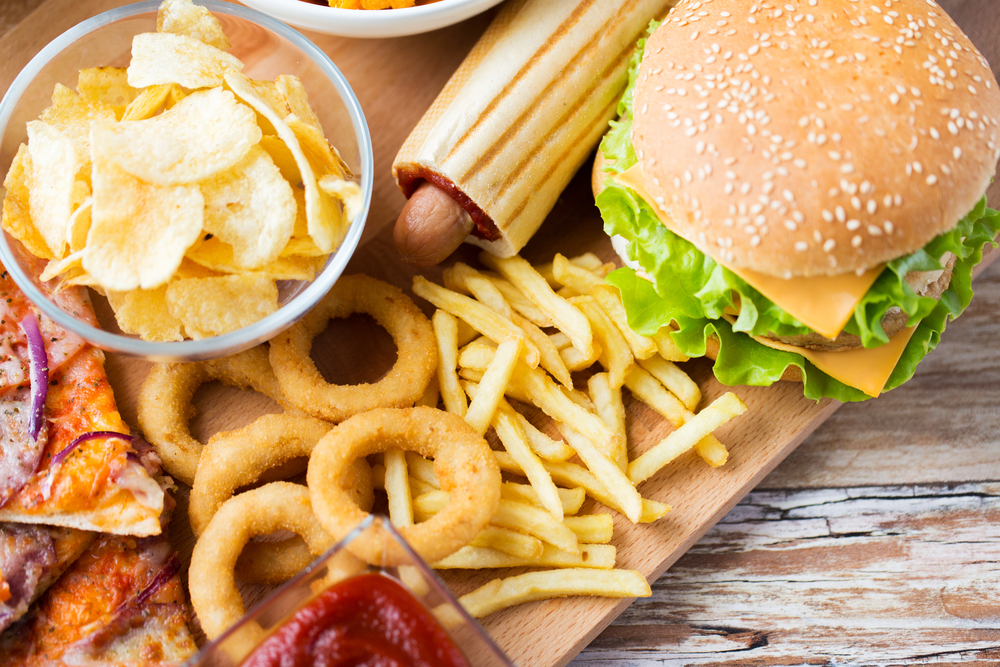
We often hear about foods that can boost our immune systems, but did you know there are dietary choices that can actually weaken your body’s ability to fight off infections? Studies show that ultra-processed foods, and those full of empty calories without nutrients can be detrimental to your health.
Our immune systems exist to protect us from bacteria and other microbes like viruses and parasites, and with a healthy diet, they have a better chance of thwarting those diseases and pathogens. A balanced diet is one that includes a plethora of vitamins and minerals, in addition to the calories we need to burn to survive.
So, we know what helps us, but what hurts us?

Sugary Foods
When we think of sugary foods, baked goods, candy, chocolate, and other processed sweets come to mind. But even dried or canned fruits or juices contain a lot of added sugar which can put your system out of whack. The microbiome living in our guts keep harmful bacteria in check, but the glucose and fructose in sweetened foods feed those unhealthy microbes, making it harder to fight infection. In addition, sugar begets craving more sugar, as the yeast and other sugar-loving microbes in your system get used to the added sugar in your body.
In addition, adding too much sugar to your diet can raise your blood sugar, which increases inflammatory proteins — particularly in those with diabetes whose blood sugar stays higher for longer. High sugar levels could also inhibit immune cells that protect the body against infection.
Those with a high-sugar diet may be more susceptible to autoimmune diseases like rheumatoid arthritis, as well.

Salty Foods
Salt makes food taste so much better. It brings out natural flavor, and spices bland dishes up. But it’s bad for you. It can stop immune functions from working normally, alter your gut bacteria and increase the risk of autoimmune diseases. Preliminary research indicates that the Western world’s rate of autoimmune diseases. It also can exacerbate existing autoimmune diseases like colitis, Crohn’s disease and lupus. One small 2016 study showed that men on a high salt diet had higher levels of monocytes and inflammatory markers, which indicates an excessive immune response.

Processed Meats
Time to give up the hot dogs and deli meats — not eating processed meats is not just for pregnant people anymore. These meats have been linked to several diseases, including colon cancer.
High in saturated fat, these meats have been shown to contribute to immune system dysfunction and contribute to inflammation in some people.
The meats also have advanced glycation end products which are harmful compounds that form when fat and protein mix with sugar in the blood. Most AGEs come from the foods we eat, and if we have too many, we cannot regulate them out, and they cause oxidative stress and inflammation. Fried bacon, hot dogs, roasted chicken thighs and steak have high levels of AGEs.

Fast Food
Everyone knows fast food isn’t great for you, but sometimes the convenience and deliciousness overcome those facts. Still, fast food isn’t just bad for your weight, it can actually harm your immune system. It’s bad for your gut biome, and can increase inflammation. In addition to holding a lot of that salt we just talked about, it has added chemicals, sometimes from the plastic or Styrofoam packaging, which mess up hormone production in humans, weaken immune responses and even cause dysfunction.

Certain Fatty Foods
There are some fats that are good for us, but saturated fats are bad for the immune system. They can activate pathways for inflammation, which inhibits immune response, and they suppress white blood cell function which can increase risk of infection. Studies in rodents have shown a high-fat diet could even damage intestinal lining, which increases susceptibility to disease.
Western diets tend to include many omega-6 fats and far fewer omega-3s. The omega-6 fats have been shown to promote inflammatory proteins that weaken our immune systems. Studies also show that omega-6 fats possibly increase the risk of asthma and allergic rhinitis.

Caffeine and Alcohol
Caffeine in and of itself won’t hurt your immune system, but lack of sleep will, and if you consume caffeine anywhere close to bedtime, you may find yourself awake in the wee hours. We’re not talking just coffee. Certain types of teas, chocolate, even protein bars can contain the stuff.
Alcohol suppresses immune response by reducing the number of cells that fight infection. This makes you more susceptible to sepsis, poor wound health, pneumonia and inflammation of the lungs.
If you do drink alcohol, limit yourself to one drink a night for best results. Consider replacing the drinks with fruit-infused water or teas (without caffeine).



























































